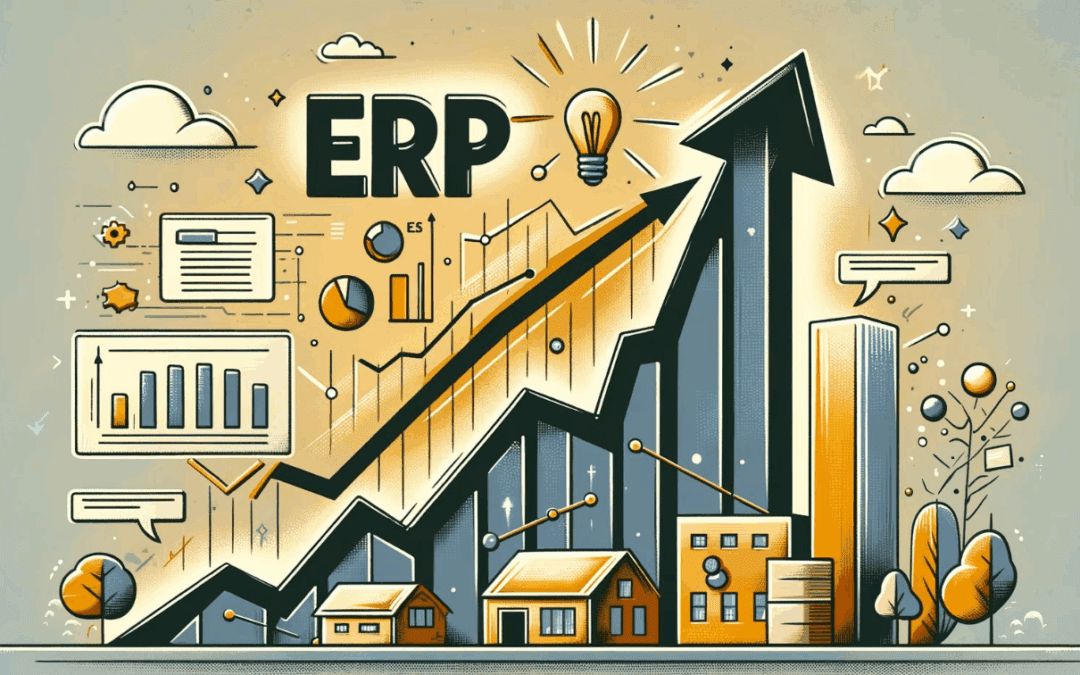In today’s fast-paced digital economy, businesses are constantly looking for ways to streamline operations, reduce costs, and enhance productivity. One of the most effective tools that companies have turned to in achieving these goals is Enterprise Resource Planning (ERP). But why is ERP such a crucial investment? Why does ERP need to be implemented in businesses, especially in 2025 and beyond?
In this comprehensive, SEO-optimized long-form blog post, we’ll dive deep into the importance of ERP systems, the benefits of ERP implementation, the challenges companies face without ERP, and real-world examples that prove ERP’s transformative power.
Table of Contents
What is ERP?
Enterprise Resource Planning (ERP) refers to a suite of integrated software applications that help businesses automate, manage, and analyze their core processes in real-time. ERP systems typically handle functions like:
-
Finance and Accounting
-
Human Resources
-
Procurement
-
Inventory and Supply Chain Management
-
Customer Relationship Management (CRM)
-
Manufacturing and Production
Rather than relying on siloed systems and spreadsheets, ERP provides a centralized platform where data from different departments is accessible in one place, improving collaboration and decision-making.
The Growing Complexity of Business Operations
Businesses today operate in a complex, globalized market. With supply chains stretching across continents, remote teams collaborating from different time zones, and customer demands shifting rapidly, managing operations manually or through disconnected software can cause:
-
Delays in decision-making
-
Data duplication and errors
-
Inefficiencies and rising costs
-
Poor customer experience
To remain competitive, companies must modernize their systems, and this is where ERP steps in.
Why ERP is No Longer Optional
Many businesses still see ERP as a “big company” solution. But in reality, ERP has become essential for businesses of all sizes due to these key reasons:
1. Data-Driven Decision Making
ERP provides real-time data that allows leaders to make informed decisions quickly. No more waiting on spreadsheets or manual reports.
2. Improved Efficiency
Automation of routine tasks like payroll, invoicing, and inventory tracking frees up valuable human resources and reduces human errors.
3. Scalability
Modern ERPs like Oracle NetSuite and SAP Business One grow with your business. You can start small and add modules as your needs expand.
4. Compliance and Risk Management
With ERP, companies can better comply with industry regulations by standardizing processes and tracking documentation effortlessly.
Top Benefits of ERP Implementation
Let’s break down the most impactful benefits of implementing an ERP system in your organization:
1. Centralized Data
ERP eliminates data silos by bringing all business data into one centralized database. This reduces duplication and enables cross-functional collaboration.
2. Enhanced Productivity
Automation of repetitive tasks allows employees to focus on strategic activities, boosting overall productivity.
3. Real-Time Analytics and Reporting
Dashboards and analytics tools provide real-time insights, allowing businesses to pivot strategies faster.
4. Better Inventory Management
ERPs provide inventory tracking, stock level alerts, and demand forecasting that help reduce stock-outs and overstocking.
5. Stronger Customer Relationships
By integrating CRM modules, ERP ensures better customer interaction tracking, improved response times, and personalized service.
6. Cost Savings
Although ERP requires upfront investment, it leads to long-term cost reduction through process efficiency and reduced manual errors.
7. Streamlined Supply Chain
ERP helps manage procurement, vendor relationships, and logistics more effectively, ensuring timely delivery and cost control.
Industries That Rely on ERP Systems
While ERP can benefit virtually any business, here are a few industries where it’s absolutely vital:
Manufacturing
ERP helps manage the full production lifecycle, from raw materials to finished goods.
Retail & eCommerce
Inventory, sales, supply chain, and customer management are all integrated seamlessly.
Healthcare
Track patient records, manage staff, handle billing and procurement—all from one system.
Construction
Manage contracts, budgets, timelines, and equipment with industry-specific ERP modules.
Education
ERPs help schools manage student records, scheduling, finances, and HR tasks.
Key Features of a Modern ERP System
A top-tier ERP system in 2025 should include the following features:
-
Cloud-Based Access for remote work
-
AI and Machine Learning for predictive insights
-
Mobile Accessibility
-
Customization and Scalability
-
Integrated CRM, HRM, and SCM modules
-
Role-Based Access Control (RBAC)
-
Robust Reporting Tools
-
Cybersecurity Features and data protection
Signs Your Business Needs an ERP System
Not sure if your business needs an ERP system? Look out for these red flags:
-
You use multiple disconnected software tools
-
Manual data entry is common, leading to errors
-
You lack real-time data visibility
-
Your teams struggle to collaborate
-
Financial reporting is slow or inaccurate
-
Inventory issues are frequent
-
Customer satisfaction is declining
If any of these sound familiar, it’s time to seriously consider ERP.
ERP Implementation Challenges and How to Overcome Them
ERP systems offer great value but implementing them is not without challenges:
1. High Initial Costs
Solution: Opt for cloud-based ERP solutions like Odoo or Zoho ERP that offer flexible pricing.
2. Resistance to Change
Solution: Invest in change management and staff training to encourage adoption.
3. Data Migration Issues
Solution: Work with experienced ERP consultants who specialize in data mapping and integration.
4. Downtime During Transition
Solution: Use phased implementation and maintain legacy systems during the transition period.
Best ERP Systems for Businesses in 2025
Here are the most recommended ERP platforms for different types of businesses:
| ERP Platform | Best For | Key Features |
|---|---|---|
| SAP S/4HANA | Large Enterprises | AI-powered, industry-specific modules, high customization |
| Oracle NetSuite | Mid-to-Large Enterprises | Cloud-based, financial and CRM integrations |
| Microsoft Dynamics 365 | Midsize Companies | Seamless with Microsoft Office, strong AI capabilities |
| Odoo ERP | Small to Mid-sized Businesses | Open-source, highly customizable, affordable |
| Zoho ERP | Small Businesses | CRM integration, user-friendly, budget-friendly |
| Infor CloudSuite | Manufacturing & Healthcare | Industry-focused solutions, cloud-first, mobile-ready |
Each of these solutions provides robust functionality, and many offer free trials or custom demos.
Real-World Success Stories
1. Toyota
Toyota implemented SAP to enhance its global operations and was able to reduce waste, streamline production, and achieve just-in-time delivery on a massive scale.
2. Amazon
Amazon leverages custom-built ERP and data systems to manage its vast logistics and warehousing operations, making it a leader in supply chain optimization.
3. Starbucks
Starbucks uses Oracle ERP for financial management, enabling it to track profitability across thousands of global outlets.
4. Tesla
Tesla integrates ERP with its manufacturing, helping to manage everything from production to energy products seamlessly.
These examples highlight how ERP systems support innovation, scalability, and customer satisfaction.
Conclusion
So, why does ERP need to be implemented in businesses? The answer is simple: to stay competitive, efficient, and future-ready.
In an age where real-time data, automation, and integration drive business success, ERP systems are not just beneficial—they’re essential. Whether you run a small eCommerce shop or manage a multinational enterprise, ERP offers the tools to centralize, streamline, and optimize every area of your operations.
Don’t wait for inefficiencies to disrupt your growth. Embrace ERP and unlock the full potential of your business in 2025 and beyond.




